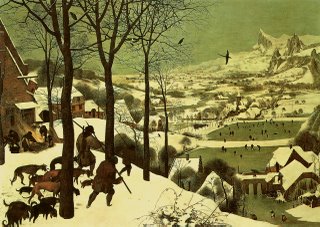"But what exactly IS a whip? He is the enforcer. And the favor bookkeeper. And the rules wonk. And, if you’re a congressman or woman, he might know even more about your district than you do. Cross him at your own peril. The term “whip” comes from the British House of Commons, which in turn took it from foxhunting. The “whipper-in” whips the dogs to keep them chasing the fox as a pack, and likewise the whip keeps the party members voting together. When a party’s leadership deems a particular roll call vote an important one, they call in the whip and his deputies, who first serve as pollsters, tallying how many members are on board, undecided, or against the measure (the “whip count”). "
Hence the whip being regarded as something powerful is no surprise. So what exactly IS a whip? Etymologically it comes from Middle English wippen, whippen; akin to Middle Dutch wippen to move up and down, sway, Old English wIpian to wipe.
With a big leap I will post a painting that the issue reminds me of (If you are interested in Genre Painting, you probably already heard of Bruegel or Brueghel, otherwis
 e click on the link below):
e click on the link below):Pieter Bruegel's Hunters in the Snow, on which New Scientist says:
"A painting tells a thousand tales. Pieter Bruegel's hunting dogs, for example, look as dejected as their owners in his painting Hunters in the Snow. But it tells us something really important: that from the Renaissance on, art and literature seem to have been way ahead of science in granting animals - or at any rate, mammals - some acceptance of sentience. The secular intellectual world of Leonardo da Vinci, Michel de Montaigne, Erasmus, Shakespeare and Francis Bacon took animal sentience for granted.
Philosophers were the big nay-sayers. There is a clear line of argument for non-sentience running from Aristotle to St Thomas Aquinas and René Descartes to Immanuel Kant. They tended to draw a thick dividing line between non-human animals and humans, allowing the latter to use the former for whatever purpose they liked."
The link between secularism and non-human sentience is clear. Think about the place of men and his relation to nature in Descartes, Plato, and the "great" chain of beings. Yet, why are we still treating nature as our dominion remains to be further elaborated...
No comments:
Post a Comment